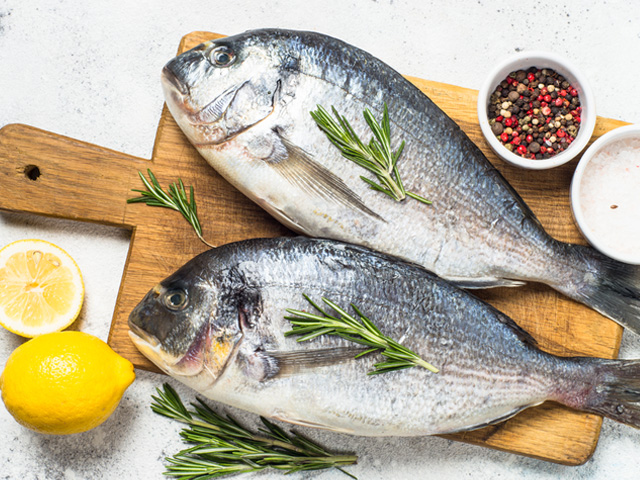
Misconceptions About Fish, The Superfood
As an excellent source of protein, fish is at the top of almost every nutritionist’s list of recommendations. With its selenium, iodine and vitamin D content, this wonderful food strengthens the immune system, helps maintain thyroid function and protects the heart. With the development of modern farmed fisheries and fish processing techniques, fish is consumed more and more every day. But, how accurate is what we know about this superfood? Let’s take a look at some common misconceptions about fish:
Claim: Unfrozen fish is always better than frozen fish!
Wrong! As you know, fish spoils very quickly. Unless you really know that the fish you buy is very fresh, frozen fish may be healthier. Frozen fish is processed while it is still on board the ship where it was caught or the fishery farm it is produced, and the internal organs that spoil quickly are discarded.
Claim: The health benefits of fish always outweigh any harmful effects of it.
False! Like many products that grow naturally in nature, fish can be contaminated with harmful chemicals (especially mercury). For this reason, certain groups, such as pregnant women and infants, should limit their consumption of fish.
Claim: Eating fish regularly is only good for heart health.
False! Regular consumption of fish significantly reduces the risk of fatal heart disease, but it also has positive effects on depression, high blood pressure, some rheumatism, stroke and some cancers.
Claim: Eating fish 1-2 times a month is enough to benefit from its positive effects.
False! Most medical research institutes including The American Heart Association (AHA) recommend consuming at least 2 servings (1 serving: 100 g) of oily fish per week.
Claim: Sushi quality fish is always healthy!
False! Bad news for sushi lovers, but there is always a risk of disease transmission with raw sea food. “Sushi-quality fish” means very fresh fish, but it is a commercial term, not a medical term. It does not mean that raw seafood is free of microorganisms. Fish prepared for sushi is often deep-frozen. Freezing can kill microorganisms, but the only way to be sure is to cook it.
Claim: Shellfish such as shrimp, crab, mussels, lobster are rich in cholesterol and should be eaten sparingly.
False! Unfortunately, there is a belief that shellfish, especially shrimp, are dangerous in terms of cholesterol. Compared to meat and chicken, shellfish contain less unhealthy fats and their cholesterol content is safe.
Claim: Naturally grown fish is better than farmed fish.
False! Each has its pros and cons.
Sea fish may taste better and be richer in omega 3 fatty acids, but you don’t know the environment in which they live and what they eat. So they may contain harmful chemicals such as mercury, pesticides and PCBs (polychlorinated biphenyls).
Farmed fish may not be as rich in flavor and omega 3 content as natural fish, depending on how it is fed. But farmed fish may be healthier because culture fishery is strictly controlled by authorities.
Claim: Fresh fish smells like fish.
False! If the fish “smells like fish” or if you smell fishy every time you open the refrigerator, it means that it is stale. In fact, fresh fish normally has no odor or very little smell of seawater.
Claim: I don’t like fish but I take fish oil capsules for Omega 3 oil.
Wrong! Interestingly, fish oil capsules containing omega 3 fatty acids do not provide the same benefits as natural fish. Recent scientific studies have shown that fish oil containing omega 3 has no effect on cardiovascular health.
Claim: Fish do not contain parasites.
False! Parasites can be found in all living things, but they die during proper cooking (when the internal temperature is 60 degrees Celsius).
Claim: Pregnant women should not eat fish.
False! Pregnant women should eat the recommended amount of fish. This is 300 to 400 grams per week. A good quality diet is very important for the brain development of the baby. Studies have shown that children of mothers who eat fish regularly are more mentally successful.
Claim: Fish is beneficial no matter how it is cooked.
False! The healthiest fish is either baked or grilled. Fried fish however, although delicious, loses much of its benefits. Frying increases the harmful effects of any food. People who always eat fried fish may even have a higher risk of heart disease and stroke.

